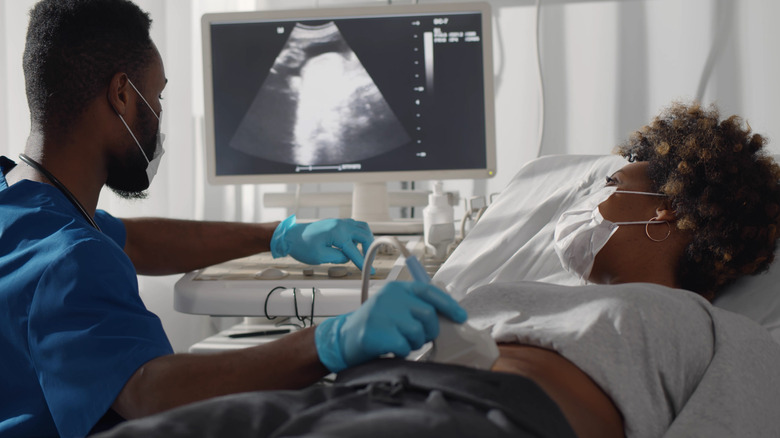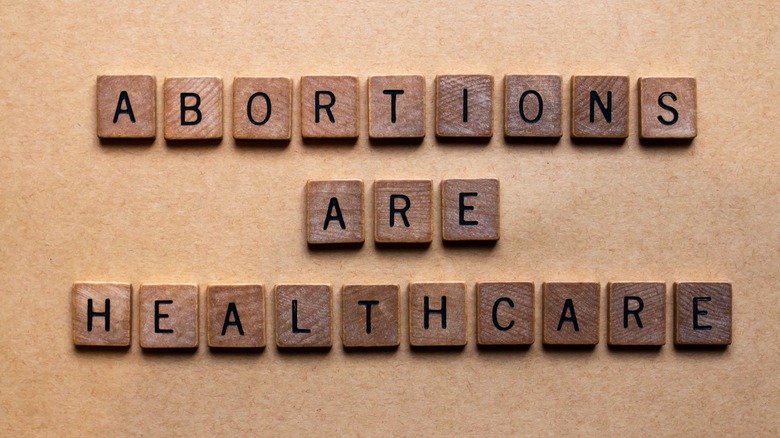The Surprising Link Between Abortion Bans And Maternal Mortality
With the Supreme Court's reversal of the Roe v. Wade ruling in June, experts assert maternal health has become incredibly compromised — in a country that already has one of the worst maternal mortality rates in the world, according to Healthline. And in states that are now banning or restricting access to abortions, maternal mortality may be on the rise.
In 2020, the rate of maternal deaths was 23.8 per 100,000 live births, up from 20.1 in 2019, according to the Centers for Disease Control and Prevention (CDC). The rate for Black women was 2.9 times the rate for white women, coming in at 55.3 deaths per 100,000 live births. The American Medical Association, the CDC, and even the White House are all in agreement that Black maternal mortality desperately needs to be reduced: they've all launched initiatives to address what's deemed a health crisis.
Abortion remains statistically safer than childbirth, and is often a vital part of maternal healthcare (via Healthline). Unfortunately, women in the U.S. are more likely now to die from pregnancy-related causes than in the 1990s, emphasizing the need for access to equitable healthcare and education, according to the American Medical Association.
How restricting abortion could lead to maternal death
Untreated pregnancy complications can cause death in anyone, but especially in people of color (via Healthline). Being denied access to abortions could contribute to higher pregnancy-related deaths, as providers could be legally obligated to deny women the care they need.
For example, women experiencing miscarriage may need additional care that's very similar to abortion care, like medical procedures or medication. Stories are already being reported around the country of doctors' confusion about the ethical obligation to treat a patient versus complying with state laws.
Women who experience an ectopic pregnancy, which happens when a fertilized embryo implants outside the uterus, resulting in a non-viable pregnancy, will need emergency intervention to end the pregnancy, Healthline reports. However, abortion bans may delay treatment or cause complications, which can lead to bleeding to death. Pregnant patients may also receive delayed cancer care in order to protect the fetus. And they may also die from maternal sepsis, which can happen if a doctor waits until the illness is too severe before providing an abortion.
Denying abortion access has also been shown to lead to higher rates of depression and anxiety, as well as higher rates of maternal homicide and intimate partner violence.


